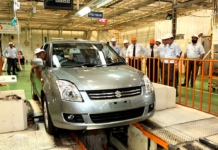The gathering of the Punjab caretaker cabinet convened in Multan marked its 20th session. However, the meeting’s agenda omitted several crucial matters of paramount public significance, leaving the citizens disheartened.
In the heartland of Punjab, a region deeply intertwined with Pakistan’s political fabric, a troubling narrative is unfolding. The soaring prices of life-saving essential medicines, coupled with a severe shortage of these critical drugs in government hospitals, have cast a pall of uncertainty over the healthcare landscape. As the public grapples with these pressing issues, questions arise about the priorities and actions of the ruling elite. This article delves into the unfolding crisis, highlighting the disconnect between bureaucratic decisions and the welfare of the people, and raises concerns about the political leadership’s silence in Punjab during this tumultuous period. The situation demands immediate attention, as neglecting the needs of the populace threatens to push Pakistan into a state of uncertainty and disillusionment.
A recent report from Punjab has cast a glaring spotlight on the soaring prices of life-saving essential medicines, a crisis that has left the public grappling with unprecedented hardships. Essential drugs for diabetes, heart diseases, and blood pressure management have witnessed dramatic price hikes, with the cost of sugar-control insulin skyrocketing to a staggering Rs 1200. Simultaneously, government hospitals’ supplies of insulin, heart medications, and blood pressure drugs are stagnating.
The Pakistan Pharmaceutical Association has sounded the alarm, citing a severe shortage of raw materials required for essential drug production within the country. This scarcity has forced numerous essential medicine manufacturing facilities to suspend operations, triggering an unprecedented strain on the market. The result: soaring demand far outstripping the supply, allowing hoarders and profiteers to exploit the situation. The scarcity of critical drugs has now reached a point where major hospitals, including the Multan Institute of Cardiology, are grappling with shortages, leaving patients, particularly those with diabetes and heart conditions, in a state of despair. Even the lower-middle-class is reeling from the twin blows of escalating prices and medicine shortages.
Critics are left wondering, where are the regulatory bodies, such as the Drug Control Authority, in addressing this pressing issue? It’s a question that looms large over the head of a government entrusted with supervisory responsibilities.
In Multan, the Caretaker Chief Minister, Syed Mohsin Raza Naqvi, and his cabinet convened for their 25th meeting. All eyes were on this gathering, expecting at least a mention of the health crisis. However, the press release following the meeting remained conspicuously silent on this critical issue. This oversight is striking given that the administrative head of this supervisory setup hails from a prominent media group, while the information minister in the cabinet is a prominent journalist known for reflecting public sentiment.
In a stark display of priorities, the Punjab government recently approved the provision of luxury Fortuner vehicles to district commissioners, additional deputy commissioners, and commissioners posted at the divisional level. This move saw the procurement and distribution of 11 such vehicles, costing over two and a half crore rupees each. Simultaneously, high court judges received interest-free loans for a decade for land acquisition and house construction, raising concerns among the public. On the flip side, government employees were notified of cuts in allowances and pensions, sparking strong protests.
The disconnect between these actions has led people to question whose interests the political parties are truly serving. While the caretaker government cites financial constraints to justify handing over 1,000 public schools to an NGO, it appears unhesitant in reducing government employees’ pensions. It raises concerns that the budget allocated for providing free medicines in government hospitals doesn’t deter the district and divisional administrations from allocating funds for luxury vehicles, contrary to federal policies discouraging excessive spending on luxury items to save precious foreign exchange and reduce the import bill. As a result, feelings of helplessness and deprivation are surging among the populace.
A growing perception among the people is that the supervisory setup in Punjab, comprised of individuals without constituencies or public accountability, continues to impose burdens on already marginalized groups. This perception reinforces the belief that such actions go unchallenged, as those in the supervisory setup face no political risks to their reputations.
The public is also questioning the leadership of political parties in Punjab for their silence on policy measures taken during the caretaker government’s tenure that appear contrary to the people’s interests. Amid ongoing disputes over the general election date among the former PDM parties, a sense of disillusionment festers among the public. Their silence on bureaucratic and technocratic actions, which increasingly undermine public welfare, only exacerbates this frustration.
While the Pakistan Tehreek-e-Insaaf may find solace in limited opportunities for political activity since May 12, the Pakistan Muslim League-Nawaz, considering Punjab its stronghold, faces scrutiny for its slogan of “roti kapra Aur makan.” The provincial leadership of other parties, including the Pakistan People’s Party and Istehkam Pakistan Party, must also answer why they aren’t raising their voices against anti-people measures in Punjab. People rightfully question the leadership of Mian Shehbaz Sharif in London and the leadership of the Pakistan People’s Party in Central and South Punjab on their silence regarding issues such as education and health. Failure to find a voice within the constitutional, democratic framework could pave the way for anarchy, making Pakistan resemble unstable regions like Somalia or Ethiopia.
It is incumbent upon those in power to wake up to the pressing needs of the Pakistani people before the abnormal becomes the new normal, and the nation’s future becomes a shadow of what it could be.







